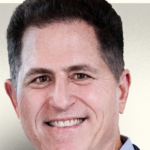Powell noted that while labor markets remain in balance, it is a “curious kind of balance that results from a marked slowing in both the supply of and demand for workers.”
“This unusual situation suggests that downside risks to employment are rising,” he added. “And if those risks materialize, they can do so quickly in the form of sharply higher layoffs and rising unemployment.”
Slok told Fortune in an interview immediately after the speech that this type of language was “puzzling.”
“Including the word ‘curious’—I mean, that’s just a somewhat unusual expression,” Slok remarked.
But he added Powell was blunt about what could go wrong: tariffs and trade wars.
“It is also possible, however, that the upward pressure on prices from tariffs could spur a more lasting inflation dynamic, and that is a risk to be assessed and managed,” Powell warned in his prepared remarks.
Slok said that risk is real, and that tariffs will have a “bigger” impact on inflation than we’ve seen so far.
Slok went further, saying Powell’s “curious kind of balance” line likely reflects the impact of mass deportations. The removal of workers, he argued, is pushing up wages in industries like agriculture, construction, and hospitality.
The administration has a goal of removing 3,000 undocumented immigrants a day, or 1 million each year, Slok noted. That would “of course” have consequences for not only labor demand, but labor supply.
The result, he said, is inflationary pressure: “So if you lower the labor supply, it really is the same impulse to the economy as tariffs. Tariffs result in higher inflation and lower GDP. Deportations … will also result in lower employment growth and more inflation, especially wage inflation.”
“The risk today is we could see that same dynamic repeat,” Slok said. If inflation starts climbing again after a rate cut, “the Fed will have to reverse course—and in the worst case, start hiking again.”
Slok was careful to note that Powell’s speechwriters likely aren’t drafting with Trump in mind. Still, he admitted, the political overlay is unavoidable. With tariffs and deportations feeding inflation from one side, and a weakening economy pulling the other way, Powell’s choice set is narrowing.
“Both tariffs and deportations result in the same impact on the economy, namely higher inflation and slower GDP growth. And that happens to be exactly what the consensus is expecting at the moment,” Slok said.
At Jackson Hole, Powell described that position as a “curious” balance. But for Slok, it looks more like a trap.









